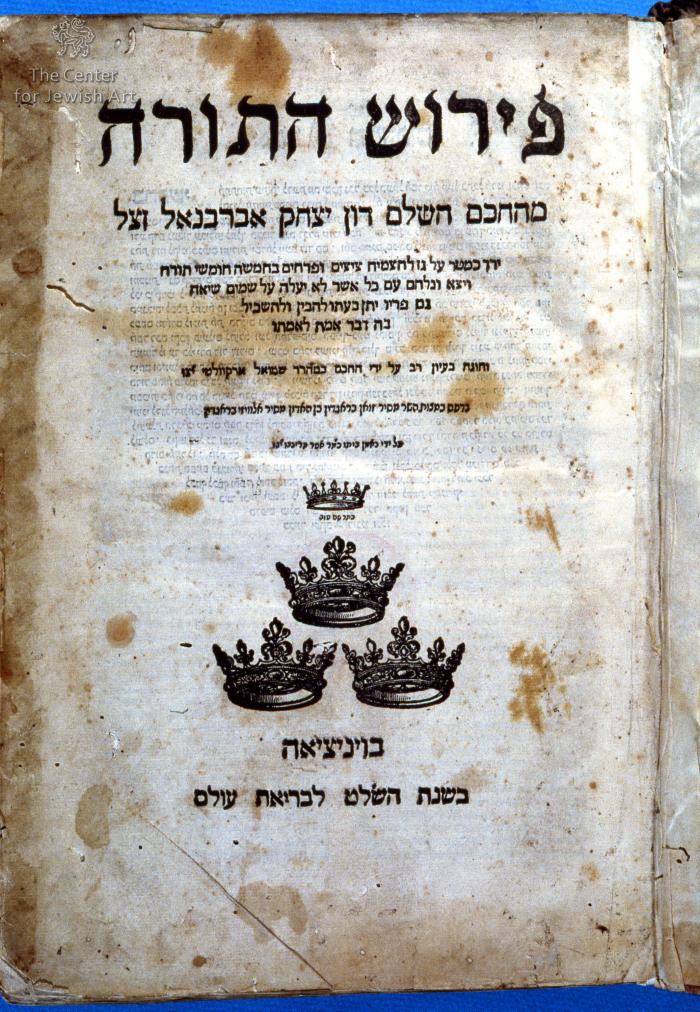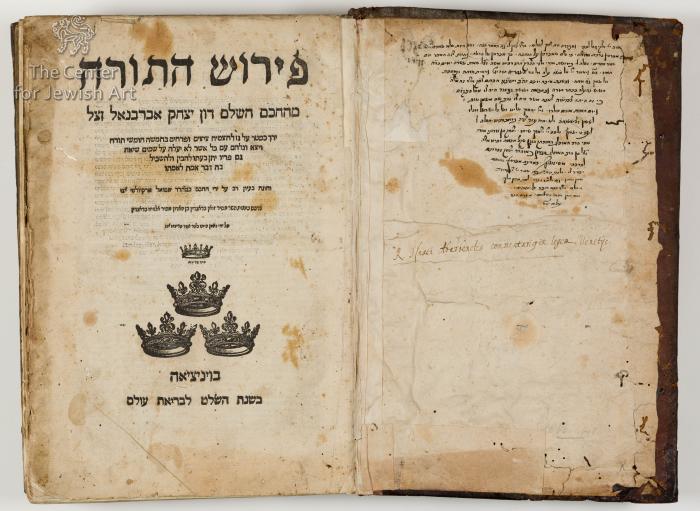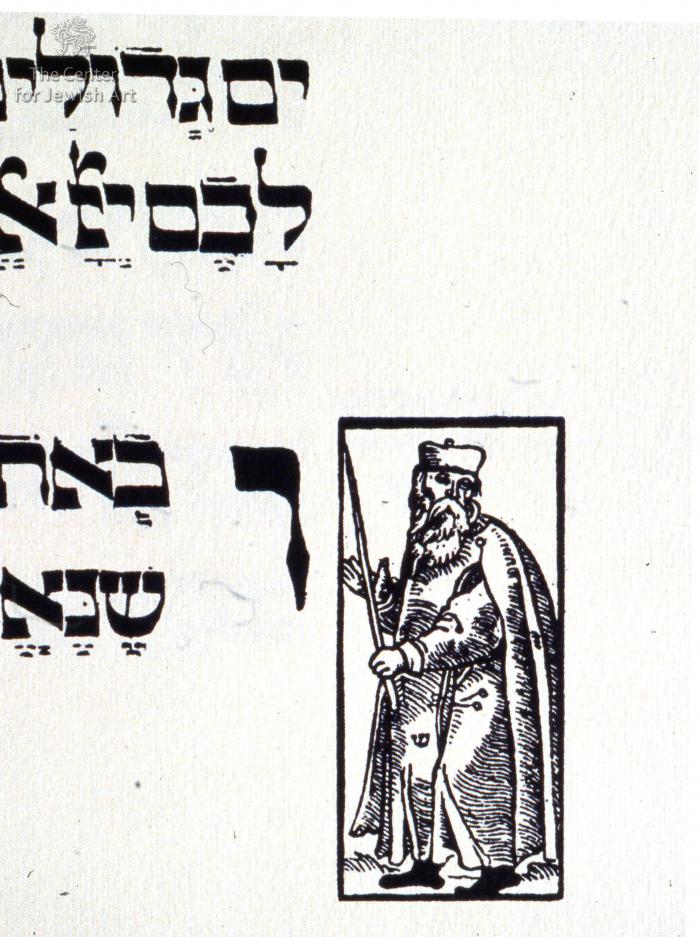Obj. ID: 37635 Perush ha-Torah by Yitzhak ben Yehudah Abarbanel, Venice, 1579

sub-set tree:
This text was prepared by William Gross:
First edition of this supremely important commentary, which is arguably the most authoritative presentation of Abravanel's views. The Abravanel himself considered it the first and foremost of his works.
This copy belonged to the famous Rabbi, Moshe ben Yitzhak, from the community of Bisenec in the Czech lands. He was the author of "Darash Moshe" (Cracow, 1589) containing 256 elucidations on the Aggadot of the Talmud. The book was specially bound by his son when he inherited it in 1617.
Rabbi Don Isaac ben Judah Abravanel (Abarbanel) was a Portuguese rabbi, scholar, Bible commentator, philosopher, and statesman. Born in Lisbon, Portugal, he studied Talmud, philosophy, and secular studies. He was one of the first Jewish scholars to be influenced by Renaissance writers, and was a major thinker and prolific Jewish scholar. In three treatises, he predicted that the Messiah would come in the near future.
Abarbanel is best-known, however, for his brilliance as a financier and as a diplomat. His political career started in Portugal, where he served as the personal agent of King Alfonso V. As treasurer, he took the unusual position of frequently using his own monies as well as the state's. In 1471, when 250 Jews were held for ransom by Alfonso, Abarbanel helped raise the required monies. He was tremendously influential among the wealthy Christians in Portugal and remained a powerful figure in the Portuguese court. However, with the accession of John II in 1481, anti-Jewish sentiments in the church and the legislature which were suppressed during the reign of his father found a sounding board. R. Abarbanel was almost executed, but managed to sneak over the border into the Spanish town of Segura de la Orden in 1483. The following year King Ferdinand invited him to be the collector of royal revenues, even though it was illegal for a Jew to hold such a high position and the Spanish Inquisition was in full swing. After having provided Ferdinand and Isabella with the monies needed to take Grenada, Abarbanel was shocked to learn that they had decided to expel all Jews from Spain. He (and maybe Abraham Senior) offered a huge bribe to rescind the edict, but they failed.
In May, 1492, Abarbanel found himself under tremendous pressure to convert and retain his status in the Spanish court. He refused, managed to smuggle his young son out of the country, and headed for Naples. He was permitted to take a thousand gold ducats with him, and was also able to get bills of exchange for much of his fortune, softening the financial blow of his departure.
In Naples, he planned to concentrate on writing his commentary to the Bible. However, he was again employed by the king to be the prime tax collector. He and the king had to flee from the French. Abarbanel lost his library. He finally settled in Venice in 1503.







